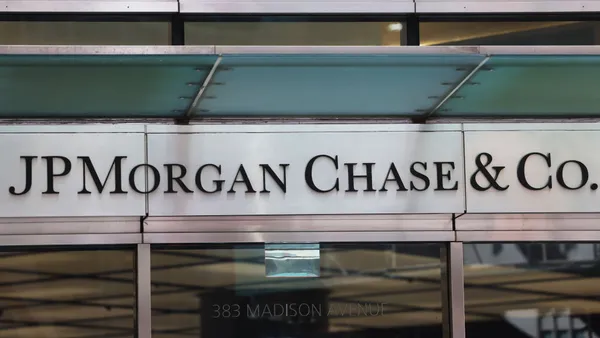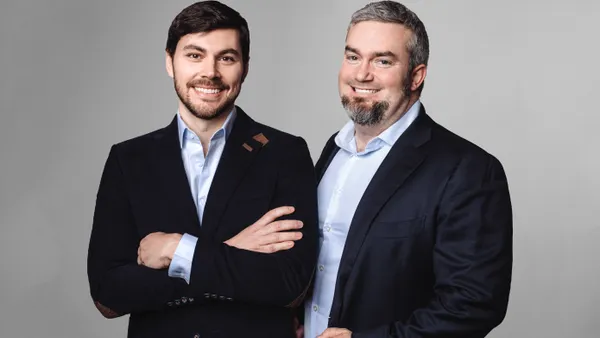Dive Brief:
- Oportun, a low- to moderate-income (LMI) lending specialist with a heavy tilt toward Latinos, has voluntarily withdrawn its application for a bank charter with the Office of the Comptroller of the Currency (OCC), the company said Friday in a statement on its website.
- The company, in a March filing, revealed the Consumer Financial Protection Bureau (CFPB) was investigating to see whether Oportun’s collection practices between 2019 and 2021 — and particularly, hardship treatments the company offered borrowers during the COVID-19 pandemic — violated consumer protection laws. Nearly two dozen consumer advocacy groups wrote Acting Comptroller Michael Hsu in August, requesting that the OCC wait until the CFPB wraps its probe before proceeding on the charter, American Banker reported.
- "We have forged a constructive relationship with the OCC since filing our initial application nearly a year ago," Oportun said in its statement Friday. "We remain committed to pursuing a bank charter with the OCC and plan to amend elements of our charter application to reflect changes to our business."
Dive Insight:
Pulling a charter application certainly isn't a dead end for a company's banking aspirations. Varo, which, in July 2020 became the first challenger bank to receive a national banking charter from the OCC, withdrew an application with the Federal Deposit Insurance Corp. (FDIC) in 2018. The lender's pursuit of a license ultimately took three years and cost nearly $100 million.
Oportun, in fact, is at least the second company to withdraw its banking charter application within a week. British challenger Monzo backed out of its effort to pursue a U.S. banking license, Banking Dive reported Oct. 4, after it became clear the OCC likely would not approve it. "There are many routes to market we’re exploring that have been successful for other market entrants who are now major players," Monzo told Reuters in a statement.
Several other fintechs have withdrawn their initial charter applications, then refiled — or have otherwise recalibrated. Square, which filed for an industrial loan company (ILC) charter with the FDIC in September 2017, withdrew that application in July 2018 before refiling and being approved in March 2020. Square’s banking arm launched a year later.
San Francisco-based fintech Brex withdrew its ILC and deposit insurance application in August. Japanese e-commerce giant Rakuten pulled its deposit insurance application for the second time in August 2020. And stock-trading app Robinhood withdrew its application with the OCC in December 2019.
Oportun drew flak in August 2020, when ProPublica and the Texas Tribune reported the company was suing thousands of low-income Latinos to collect on debts during the COVID-19 pandemic's early days. Oportun has vowed to drop all pending debt claims, temporarily suspend the filing of new ones, and cap its interest rate at 36%.
But advocacy groups such as the Center for Responsible Lending, the National Consumer Law Center and the League of United Latin American Citizens have continued to blast Oportun, saying the company's practices jeopardize citizenship applications for some immigrants.
"Oportun has weaponized the legal system as their debt collector with zero regard to the impact on the Latino community that they purport to serve," they wrote in the August letter to Hsu, according to American Banker.
Among the business changes to which Oportun may be referring in its statement Friday, the company in November 2020 announced a partnership with Sioux Falls, South Dakota-based MetaBank that could allow Oportun to make loans outside of its current geographic footprint. The fintech's signature personal installment loans of between $300 and $10,000 are available in 12 states, but the company says it serves customers online and over the phone in 21 more.
Oportun also offers auto loans and credit cards, and, as of last year, counted 340 brick-and-mortar locations. A national charter, if refiled and eventually approved, would give the products a nationwide distribution and a launching pad to offer checking and savings accounts and certificates of deposit.
Since revealing the CFPB investigation, Oportun has at least once made the effort to appear proactive with regulators. It was one of six fintechs that asked the CFPB in June to give more guidance on how it will apply the theory of disparate impact when artificial intelligence (AI), machine learning (ML) and alternative credit data are used to make lending decisions. Under disparate impact, a policy can be illegal if it has a discriminatory effect on a protected class but may not be if the intent behind a business serves a "substantial, legitimate, nondiscriminatory interest."













